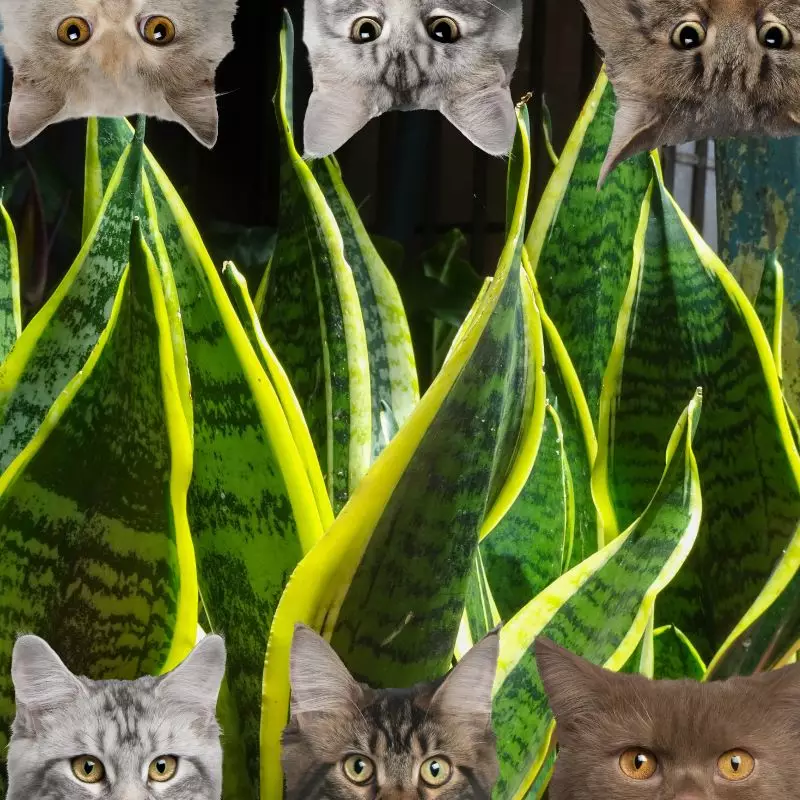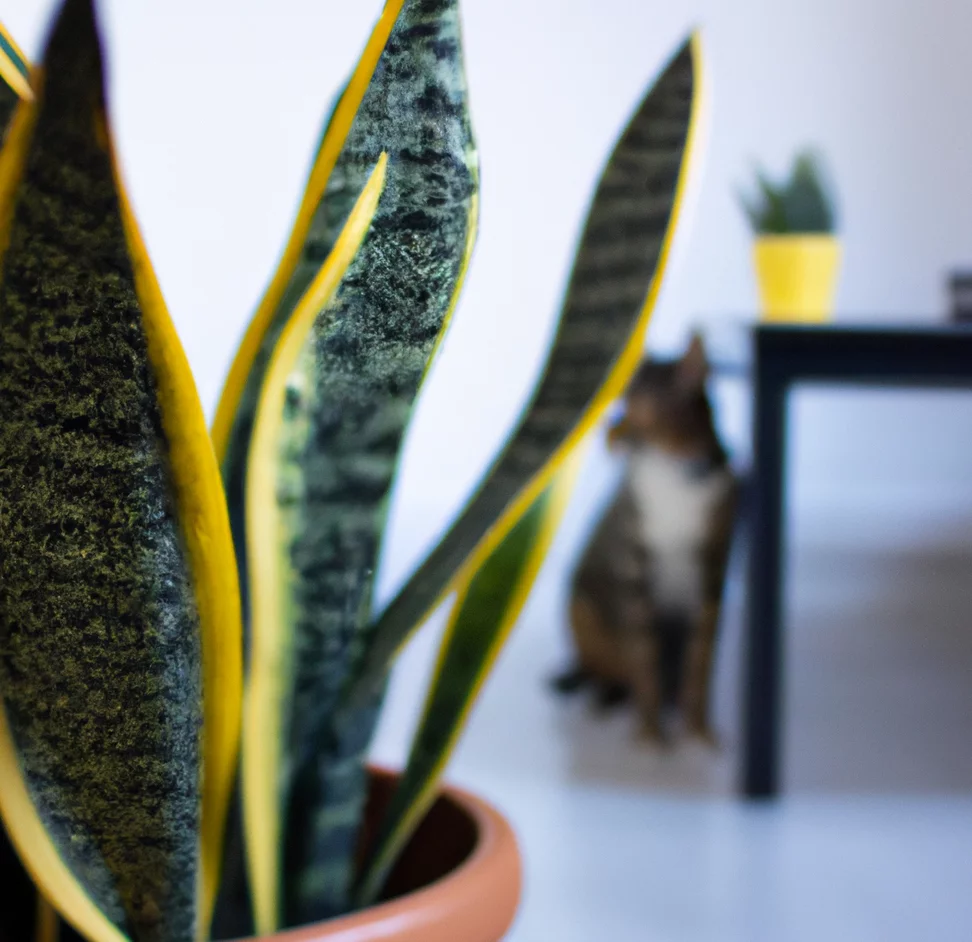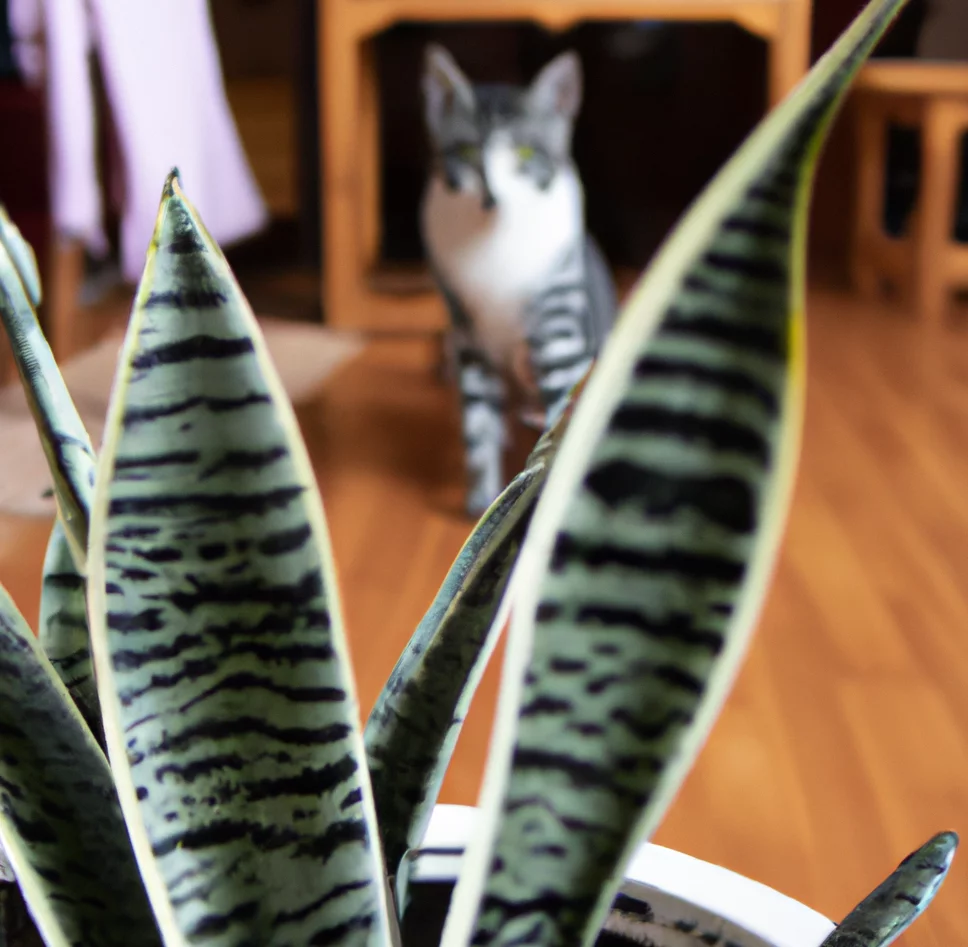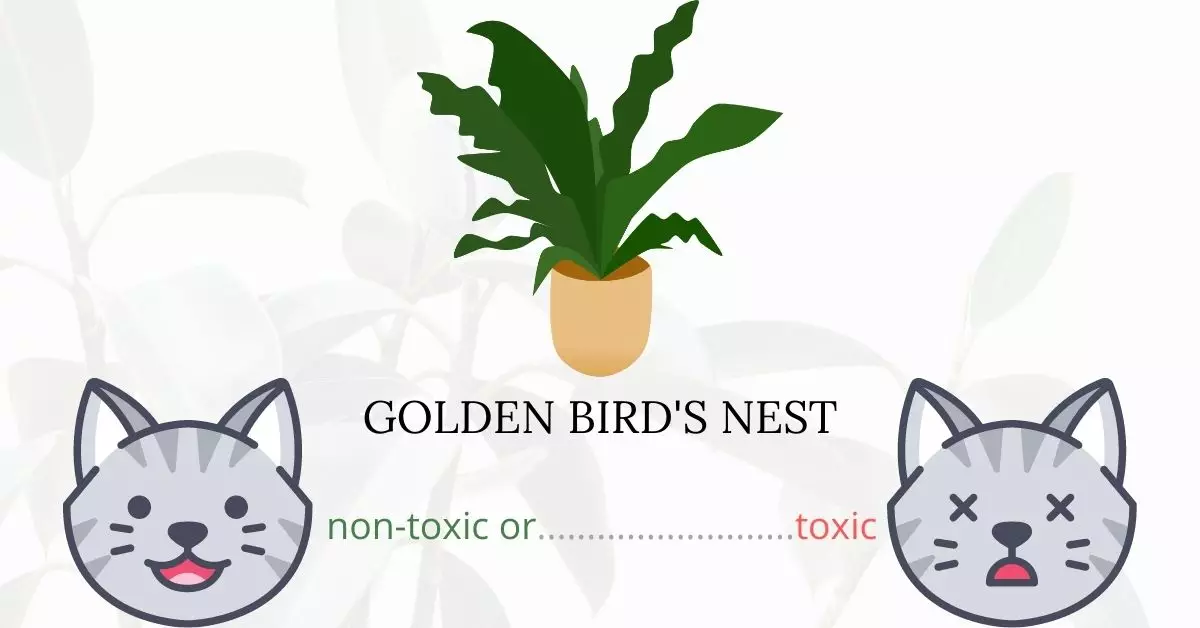Golden Bird’s Nest, also commonly referred to as Snake Plant, Mother-in-Law’s Tongue, or Good Luck Plant, is a favored indoor plant due to its striking foliage. However, it’s important to note that this plant is toxic to cats, containing compounds like saponins and organic acids which can pose health risks. Saponins, natural chemicals produced by the plant as a defense against microbes, fungi, and insects, are the primary cause of this toxicity. While the toxicity is typically mild, serious complications or fatal cases are extremely rare but still possible.
This article is the result of collaborative efforts with a team of experienced DVMs (doctors of veterinary medicine). Through their invaluable contributions, we aim to offer precise and current details on the potential hazards linked to the Golden Bird’s Nest and its impact on feline health. Furthermore, our findings are corroborated by in-depth research from high-authority websites, including the ASPCA and PetMD, ensuring a comprehensive understanding of each plant’s effects.
Clinical Signs of Golden Bird’s Nest or Snake Plant Poisoning in Cats

When cats come into contact or ingest the Golden Bird’s Nest, also known as the Snake Plant, certain clinical symptoms can manifest due to the plant’s inherent chemical compounds. The presence of saponins in the plant, while serving as a natural defense mechanism for the plant against microbes, fungi, and insects, can lead to several adverse reactions in cats. Interestingly, saponins give the plant a bitter taste, which generally deters cats from consuming large quantities, thus serving as a natural protective measure.
However, if a cat does ingest or even just nibbles on parts of the plant, the following signs can be observed:
- Vomiting: Caused by the irritant nature of saponins on the feline’s gastrointestinal system.
- Diarrhea: A reaction due to the body’s attempt to eliminate the toxic compounds quickly.
- Depression: The cat may become lethargic or less responsive, which could be a result of the overall discomfort or unease due to poisoning.
- Excessive salivation: This occurs because the bitter taste and irritant nature of the saponins stimulate excessive drooling.
- Loss of appetite: The unpleasant experience and the gastrointestinal distress caused by the saponins may deter the cat from eating.
It’s crucial to remember that these symptoms, although indicative of Golden Bird’s Nest poisoning, can be common to various plant poisonings. Therefore, a definitive diagnosis often hinges on witnessing the cat interacting with the plant or spotting remnants of the plant in the vicinity. If any of these symptoms are observed, it’s imperative to consult with a veterinarian promptly.
First Aid and Treatment of Golden Bird’s Nest or Snake Plant Poisoning in Cats

Bringing your cat to a veterinarian is important to address your cat’s symptoms properly. The vet will provide supportive treatment which may include inducing vomit, intravenous fluid therapy, administering activated charcoal, and performing gastric lavage. He may also prescribe medications as needed by your cat to alleviate symptoms.
Recovery from Golden Bird’s Nest or Snake Plant Poisoning in Cats

Potentially life threatening intoxication is rare in cats as it is less likely that your cat will consume a substantial amount of golden bird’s nest plant. Thus, the outlook of recovery is good and usually symptoms will disappear in about a day or two.
Once you are back at home with your cat, give him or her plenty of fluids to continue clearing his or her stomach. Ask your veterinarian if there is a need to change your cat’s diet as his or her stomach may still be weak from the poisoning episode.
Prevention of Golden Bird’s Nest or Snake Plant Poisoning in Cats
While it golden bird’s nest may look good in your house, it is recommended to avoid growing this plant as it is harmful for your cats. Your cat may also be exposed to a golden bird’s nest or even other toxic plants outside your home so it is better to keep them safe and comfortable indoors and limit their access outdoors.
If you love plants but have cats at home, check out these lists:





